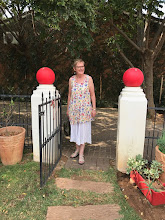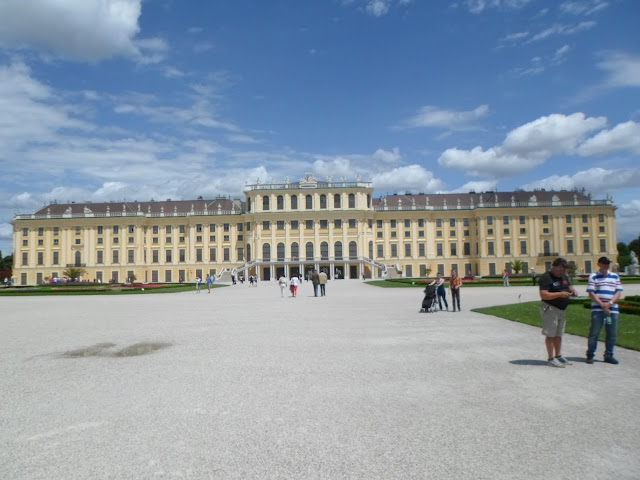The Schonbrunn palace, Vienna: home of Marie Antionette until the age of nine
I read books. I listen to books. Listening doubles my book-acquisition-capacity. Listening in the car makes trips around the suburbs and up to the campus flash by. Listening in the sunroom transforms monotonous sewing jobs like my current task of machine-appliquéing eight panels with intricate cut outs for a William Morris quilt. My book-listening is made possible by Unisa Library’s audio visual section where I regularly borrow Clipper Audio cds.
At present I am listening to the historical biographer (a very accessible historian), Antonia Fraser’s “Must you go? My life with Harold Pinter. This is an account based on Antonia’s diaries of thirty-three years with Harold Pinter, starting with their serendipitous meeting, her separation from her first husband, her divorce and marriage to Harold and their life together until his death from cancer in 2008. The couple are not ordinary - an upper class British writer with links to the peerage and a celebrated playwright, actor and director – and their lives were not ordinary either. International travel, political activism, the theatre, friends with the rich and famous (a phone call from Jackie Kennedy is just mentioned in passing, rather like I mention phoning a friend for her chocolate cake recipe), country houses, ancestral homes, town houses, swish hotels, luncheons, parties, picnics and poems.
I have read several of Antonia Fraser’s books and they have made their rounds in book club too: Mary Queen of Scots, Charles II, Cromwell, Marie Antionette and others. Brilliantly for their detailed research and brilliant for their accessibility. “Must you go?” captures Antonia’s grief at the demise of a beloved husband. Death is the great leveller: kings, playwrights, shopkeepers, housewives. Ten years ago I whispered similar helpless words in the same straits: “Please don’t go!”




